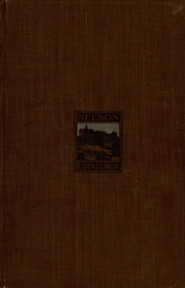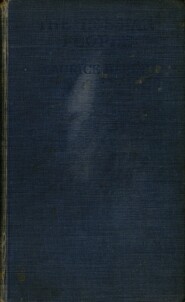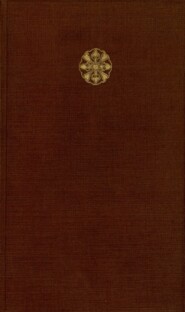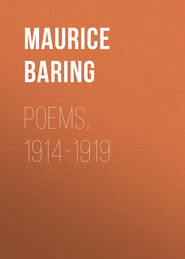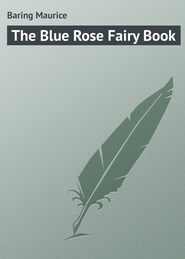По всем вопросам обращайтесь на: info@litportal.ru
(©) 2003-2024.
✖
Passing By
Настройки чтения
Размер шрифта
Высота строк
Поля
There is a parcel for me at the Embassy. It is too big for the bag. Could you bring it with you?
From the Diary of Godfrey Mellor
Tuesday, June 10th.
Dined with Cunninghame last night to meet his cousin, Mrs Caryl. She is the wife of a diplomat who is Second Secretary at Paris. A pleasant dinner. The Housmans were there, and A. and his sister.
Friday, June 25th..
Received a letter from Mrs Housman to-day. She says the change of air is doing her good. She hopes I will come to Cornwall some time during my holiday.
Monday, July 5th.
Dined with Housman last night. Miss Housman was there, and the Carrington-Smiths, and a Mrs Park who used to be a professional singer. She sang after dinner. Miss Housman accompanied her. She sang Tosti's Ninon, some Lassen, some Bemberg, a song by Lord Henry Somerset, and E. Purcell's Passing By. Miss Housman said it was a comfort to accompany someone who had a sense of time. She has a powerful voice and has been well trained, but Passing By did not suit her style of singing, and I regretted that she had attempted that song. She was not always in tune.
Housman enjoyed it, and accompanied her himself afterwards in some coon songs which he played by ear.
Housman asked me to stay with them for the whole of August. He said he was very anxious that I should go, as he would not be able to be much in Cornwall and he was afraid Mrs Housman would be lonely. He asked Cunninghame also. I accepted.
A. spends all his spare time now on his yacht. I am going to stay with him next Saturday.
Monday, July 12th.
A. is going to the Cowes Regatta. He asked me to go with him, but I am leaving on the 1st of August for Cornwall.
Sunday, August 1st. Grey Farm, Carbis Bay, Cornwall.
I arrived here last night. A pleasant spot near the sea and not far from a golf links. Mrs Housman and Housman are here alone. Housman is greatly perturbed because Mrs Carrington-Smith is bringing a divorce suit against her husband for infidelity. The other person concerned is Miss Hope, whom I met at dinner one night at Cunninghame's flat. Housman says that Miss Hope is neurotic and unhinged. Mrs Housman has never met Miss Hope.
Housman said he hoped I would be able to stay on here, as he would not be able to spend much time in Cornwall. Carrington-Smith was so greatly upset by this wretched business that he could not attend to the affairs of the firm. He was afraid Mrs Housman would be lonely. Lady Jarvis had promised to come later, and Cunninghame also, but he did not know when. Miss Housman had been obliged to go to Vichy to take the waters. Housman played golf in the afternoon with a member of the Club. I am not a golf player, unfortunately. I told him that Cunninghame was an admirable player.
Monday, August 2nd.
Housman has been telegraphed for and left this morning. In the afternoon we went for a long drive and had tea in a farm-house. The climate is warm and agreeable.
Tuesday, August 3rd.
Bathed in the sea this morning and went for a long walk in the afternoon with Mrs H. After dinner she tried some new songs by Tchaikovsky. We did not care for them much and fell back on Schubert. Schubert is her favourite composer. She sang the Gruppe aus Tartarus.
Wednesday, August 4th.
We went for an expedition to the Lizard. Mrs Housman told me that when she was a girl she had much wanted to become a professional singer, and that she was studying for the Concert Stage when she met Housman.
Thursday, August 5th.
We sat on the beach all the afternoon. It was extremely hot and enjoyable. Mrs Housman read Consuelo, by George Sand, aloud. She reads French with great purity of accent.
Father Stanway, the local priest, came to dinner, a cheerful man with a venerable appearance. When we were left alone, after dinner, talking of men in public offices, he said he knew Bowes, in the Foreign Office, who had spent his Easter holidays here. I asked him whether he thought converts of that description made satisfactory Catholics. He said he thought Bowes would be an admirable Catholic. I said I thought it must be very difficult for a man of his upbringing, as Bowes had been brought up in a rigid Church of England family, and his father often wrote to The Times, condemning ritualistic practices and innovations. Father Stanway said it was not so complicated as I thought. There were only three things indispensable to a man if he wished to become a Catholic: To believe in God, to follow his conscience, to love his neighbour as himself. If he did that all the rest was easy. He said he admired Bowes greatly for taking the step.
Friday, August 6th.
We went to the Land's End, where there were a great many tourists. Mrs Housman continues to read out loud Consuelo in the afternoons and evenings. It is an interesting book, but I prefer Jane Eyre.
Saturday, August 7th.
I received a letter from Riley this morning. He has been in London nearly a month, and was there a fortnight before I left, but he did not come to see me for the following reason. He has taken the step and has been received into the Roman Catholic Church, and he says his first intention was not to tell anyone of his conversion. He did not come to see me because he knew he would not be able to help discussing it. He is no longer making a secret of it now. He found this too difficult. Two or three days after he had been received he happened to be dining out and it was a Friday. His hostess said to him, in the course of conversation: "You are not a Catholic, are you?" He resolved then and there to keep it secret no longer.
He tells me in his letter, "Your philosophy of the first lie is quite right. Only I regard what you call the first lie as the first Truth. Once this is so, all the rest follows." He says that after he left me in Gray's Inn in May he resolved to put the matter from him for a time and not to think about it. He went back to Paris and pursued his research. One morning he woke up and felt he could not delay another moment. He took the train for London the next day, where he intended to go soon in any case for his holiday, and the day after his arrival he called at the Brompton Oratory and asked to see a priest, as he knew no priests. He sat in a small waiting-room downstairs, and presently an elderly priest, Father X., arrived and asked him what he could do for him. He told him he wished for instruction prior to becoming a Catholic. He called the next day. Father X. told him after they had talked for some time that he did not think he would need much instruction. But he continued to see him for the next three weeks. He was then received. He says that what seemed before a step of great difficulty now appeared quite extraordinarily simple, and he cannot conceive why he did not take it a long time ago.
Sunday, August 8th.
Mrs Housman went to Mass. I sat in the garden; when she returned from Mass I told her about Riley. She asked me how old he was. I said I thought he was about thirty-five. I told her he was a brilliant scholar, and had taken high honours at Oxford. He had a post at the Liverpool University. She said she had felt certain he would come into the Church.
Lady Jarvis is coming here next week.
Monday, August 9th.
We spent the whole day on the beach, reading aloud. Housman has written to say that Mrs Carrington-Smith will insist on bringing their affairs into court. Carrington-Smith is much worried. Mrs Housman says that Mrs Carrington-Smith is an absurd woman.
Tuesday, August 10th.
We spent the morning at St Ives, shopping. I bought The Pickwick Papers and an old silver teapot. We sat on the beach in the afternoon, reading Consuelo. After dinner Mrs Housman sang a beautiful French-Canadian song.
Wednesday, August 11th.
Just as we were sitting down to luncheon A. walked into the room; he had sailed here from Cowes in his yacht, which is anchored in the bay. He could not stay to luncheon as he was lunching at the Golf Club with a friend. Mrs Housman asked him to dinner. He accepted. He said he had spent a most enjoyable week at Cowes in his yacht, but had not won any races. His sister had been with him, only as she is a bad sailor she had not enjoyed the sailing as much as he would have liked. Cunninghame has been at Cowes for three days on board a Mr Venderling's steam yacht (an American). A. says that he intends to spend some time here cruising about the coast.
Thursday, August 12th.
Lady Jarvis arrived this morning. She says she thinks that if Mrs Carrington-Smith goes into court she will get a divorce. She has substantial evidence. Carrington-Smith is most uneasy.
A. came to luncheon and proposed that we should all go for a sail in the afternoon together. Lady Jarvis and I declined, as we are both moderate sailors. Mrs Housman went with him. They came back at six and she said she had enjoyed it immensely.
Friday, August 13th.
Mrs Housman received a telegram from Housman this morning, telling her she must ask A. to stay here in the house. She had written to tell him – Housman – A. was here. A. came to luncheon and Mrs Housman invited him to stay. He said he would be pleased to do so for a few days, but that he is due in his yacht early next week at Plymouth. Mrs Housman has received a letter from Cunninghame, asking whether it would be convenient for him to come next week. She has telegraphed to him that she would be glad to receive him.
Saturday, August 14th.
The weather was so beautiful and the sea was so smooth that we were all persuaded to go on board the yacht, where we had luncheon. We went for a short sail in the afternoon. Although I did not feel ill I cannot say I enjoyed it, I prefer the dry land. Lady Jarvis said she enjoyed it greatly, although she is a bad sailor as a rule. Mrs Housman is an excellent sailor.
Sunday, August 15th.
I am finishing Consuelo by myself as we are not able to read aloud any more. We all went for a drive in two carriages in the afternoon through disused mines, and had tea in a farm-house.
A. says he is enjoying his holiday immensely.
Cunninghame arrives here to-morrow. We had some music in the evening. A.'s favourite composer is Sullivan, but his favourite song is Offenbach's Chanson de Fortunio, which Mrs Housman sang to-night.
From the Diary of Godfrey Mellor
Tuesday, June 10th.
Dined with Cunninghame last night to meet his cousin, Mrs Caryl. She is the wife of a diplomat who is Second Secretary at Paris. A pleasant dinner. The Housmans were there, and A. and his sister.
Friday, June 25th..
Received a letter from Mrs Housman to-day. She says the change of air is doing her good. She hopes I will come to Cornwall some time during my holiday.
Monday, July 5th.
Dined with Housman last night. Miss Housman was there, and the Carrington-Smiths, and a Mrs Park who used to be a professional singer. She sang after dinner. Miss Housman accompanied her. She sang Tosti's Ninon, some Lassen, some Bemberg, a song by Lord Henry Somerset, and E. Purcell's Passing By. Miss Housman said it was a comfort to accompany someone who had a sense of time. She has a powerful voice and has been well trained, but Passing By did not suit her style of singing, and I regretted that she had attempted that song. She was not always in tune.
Housman enjoyed it, and accompanied her himself afterwards in some coon songs which he played by ear.
Housman asked me to stay with them for the whole of August. He said he was very anxious that I should go, as he would not be able to be much in Cornwall and he was afraid Mrs Housman would be lonely. He asked Cunninghame also. I accepted.
A. spends all his spare time now on his yacht. I am going to stay with him next Saturday.
Monday, July 12th.
A. is going to the Cowes Regatta. He asked me to go with him, but I am leaving on the 1st of August for Cornwall.
Sunday, August 1st. Grey Farm, Carbis Bay, Cornwall.
I arrived here last night. A pleasant spot near the sea and not far from a golf links. Mrs Housman and Housman are here alone. Housman is greatly perturbed because Mrs Carrington-Smith is bringing a divorce suit against her husband for infidelity. The other person concerned is Miss Hope, whom I met at dinner one night at Cunninghame's flat. Housman says that Miss Hope is neurotic and unhinged. Mrs Housman has never met Miss Hope.
Housman said he hoped I would be able to stay on here, as he would not be able to spend much time in Cornwall. Carrington-Smith was so greatly upset by this wretched business that he could not attend to the affairs of the firm. He was afraid Mrs Housman would be lonely. Lady Jarvis had promised to come later, and Cunninghame also, but he did not know when. Miss Housman had been obliged to go to Vichy to take the waters. Housman played golf in the afternoon with a member of the Club. I am not a golf player, unfortunately. I told him that Cunninghame was an admirable player.
Monday, August 2nd.
Housman has been telegraphed for and left this morning. In the afternoon we went for a long drive and had tea in a farm-house. The climate is warm and agreeable.
Tuesday, August 3rd.
Bathed in the sea this morning and went for a long walk in the afternoon with Mrs H. After dinner she tried some new songs by Tchaikovsky. We did not care for them much and fell back on Schubert. Schubert is her favourite composer. She sang the Gruppe aus Tartarus.
Wednesday, August 4th.
We went for an expedition to the Lizard. Mrs Housman told me that when she was a girl she had much wanted to become a professional singer, and that she was studying for the Concert Stage when she met Housman.
Thursday, August 5th.
We sat on the beach all the afternoon. It was extremely hot and enjoyable. Mrs Housman read Consuelo, by George Sand, aloud. She reads French with great purity of accent.
Father Stanway, the local priest, came to dinner, a cheerful man with a venerable appearance. When we were left alone, after dinner, talking of men in public offices, he said he knew Bowes, in the Foreign Office, who had spent his Easter holidays here. I asked him whether he thought converts of that description made satisfactory Catholics. He said he thought Bowes would be an admirable Catholic. I said I thought it must be very difficult for a man of his upbringing, as Bowes had been brought up in a rigid Church of England family, and his father often wrote to The Times, condemning ritualistic practices and innovations. Father Stanway said it was not so complicated as I thought. There were only three things indispensable to a man if he wished to become a Catholic: To believe in God, to follow his conscience, to love his neighbour as himself. If he did that all the rest was easy. He said he admired Bowes greatly for taking the step.
Friday, August 6th.
We went to the Land's End, where there were a great many tourists. Mrs Housman continues to read out loud Consuelo in the afternoons and evenings. It is an interesting book, but I prefer Jane Eyre.
Saturday, August 7th.
I received a letter from Riley this morning. He has been in London nearly a month, and was there a fortnight before I left, but he did not come to see me for the following reason. He has taken the step and has been received into the Roman Catholic Church, and he says his first intention was not to tell anyone of his conversion. He did not come to see me because he knew he would not be able to help discussing it. He is no longer making a secret of it now. He found this too difficult. Two or three days after he had been received he happened to be dining out and it was a Friday. His hostess said to him, in the course of conversation: "You are not a Catholic, are you?" He resolved then and there to keep it secret no longer.
He tells me in his letter, "Your philosophy of the first lie is quite right. Only I regard what you call the first lie as the first Truth. Once this is so, all the rest follows." He says that after he left me in Gray's Inn in May he resolved to put the matter from him for a time and not to think about it. He went back to Paris and pursued his research. One morning he woke up and felt he could not delay another moment. He took the train for London the next day, where he intended to go soon in any case for his holiday, and the day after his arrival he called at the Brompton Oratory and asked to see a priest, as he knew no priests. He sat in a small waiting-room downstairs, and presently an elderly priest, Father X., arrived and asked him what he could do for him. He told him he wished for instruction prior to becoming a Catholic. He called the next day. Father X. told him after they had talked for some time that he did not think he would need much instruction. But he continued to see him for the next three weeks. He was then received. He says that what seemed before a step of great difficulty now appeared quite extraordinarily simple, and he cannot conceive why he did not take it a long time ago.
Sunday, August 8th.
Mrs Housman went to Mass. I sat in the garden; when she returned from Mass I told her about Riley. She asked me how old he was. I said I thought he was about thirty-five. I told her he was a brilliant scholar, and had taken high honours at Oxford. He had a post at the Liverpool University. She said she had felt certain he would come into the Church.
Lady Jarvis is coming here next week.
Monday, August 9th.
We spent the whole day on the beach, reading aloud. Housman has written to say that Mrs Carrington-Smith will insist on bringing their affairs into court. Carrington-Smith is much worried. Mrs Housman says that Mrs Carrington-Smith is an absurd woman.
Tuesday, August 10th.
We spent the morning at St Ives, shopping. I bought The Pickwick Papers and an old silver teapot. We sat on the beach in the afternoon, reading Consuelo. After dinner Mrs Housman sang a beautiful French-Canadian song.
Wednesday, August 11th.
Just as we were sitting down to luncheon A. walked into the room; he had sailed here from Cowes in his yacht, which is anchored in the bay. He could not stay to luncheon as he was lunching at the Golf Club with a friend. Mrs Housman asked him to dinner. He accepted. He said he had spent a most enjoyable week at Cowes in his yacht, but had not won any races. His sister had been with him, only as she is a bad sailor she had not enjoyed the sailing as much as he would have liked. Cunninghame has been at Cowes for three days on board a Mr Venderling's steam yacht (an American). A. says that he intends to spend some time here cruising about the coast.
Thursday, August 12th.
Lady Jarvis arrived this morning. She says she thinks that if Mrs Carrington-Smith goes into court she will get a divorce. She has substantial evidence. Carrington-Smith is most uneasy.
A. came to luncheon and proposed that we should all go for a sail in the afternoon together. Lady Jarvis and I declined, as we are both moderate sailors. Mrs Housman went with him. They came back at six and she said she had enjoyed it immensely.
Friday, August 13th.
Mrs Housman received a telegram from Housman this morning, telling her she must ask A. to stay here in the house. She had written to tell him – Housman – A. was here. A. came to luncheon and Mrs Housman invited him to stay. He said he would be pleased to do so for a few days, but that he is due in his yacht early next week at Plymouth. Mrs Housman has received a letter from Cunninghame, asking whether it would be convenient for him to come next week. She has telegraphed to him that she would be glad to receive him.
Saturday, August 14th.
The weather was so beautiful and the sea was so smooth that we were all persuaded to go on board the yacht, where we had luncheon. We went for a short sail in the afternoon. Although I did not feel ill I cannot say I enjoyed it, I prefer the dry land. Lady Jarvis said she enjoyed it greatly, although she is a bad sailor as a rule. Mrs Housman is an excellent sailor.
Sunday, August 15th.
I am finishing Consuelo by myself as we are not able to read aloud any more. We all went for a drive in two carriages in the afternoon through disused mines, and had tea in a farm-house.
A. says he is enjoying his holiday immensely.
Cunninghame arrives here to-morrow. We had some music in the evening. A.'s favourite composer is Sullivan, but his favourite song is Offenbach's Chanson de Fortunio, which Mrs Housman sang to-night.






